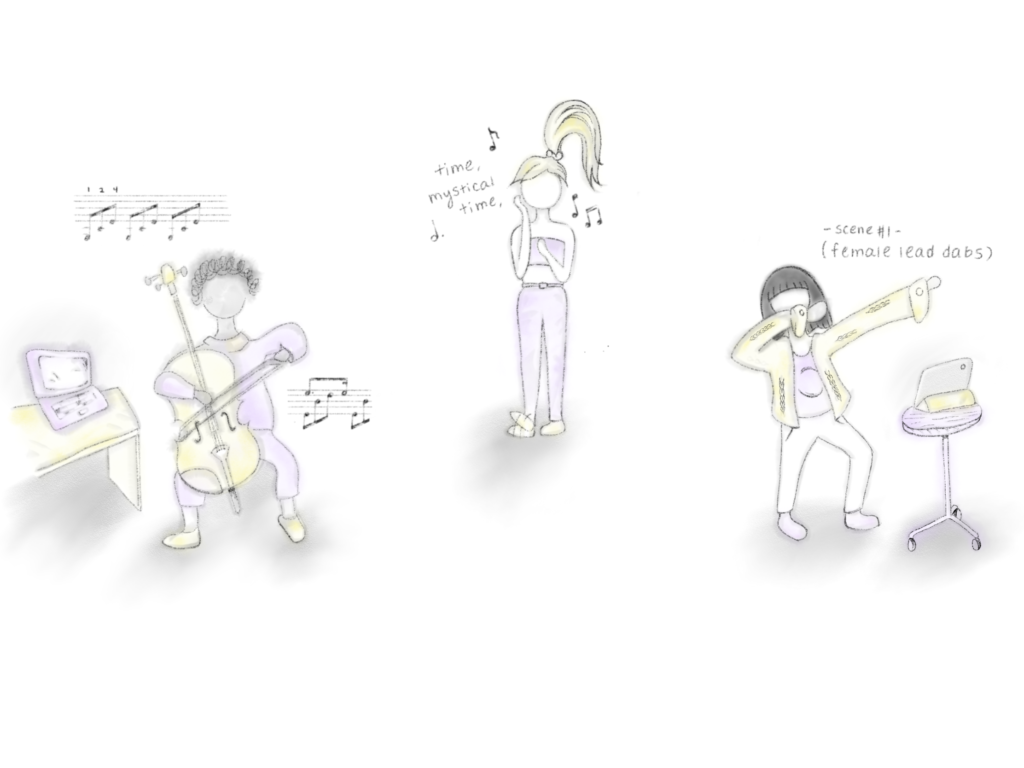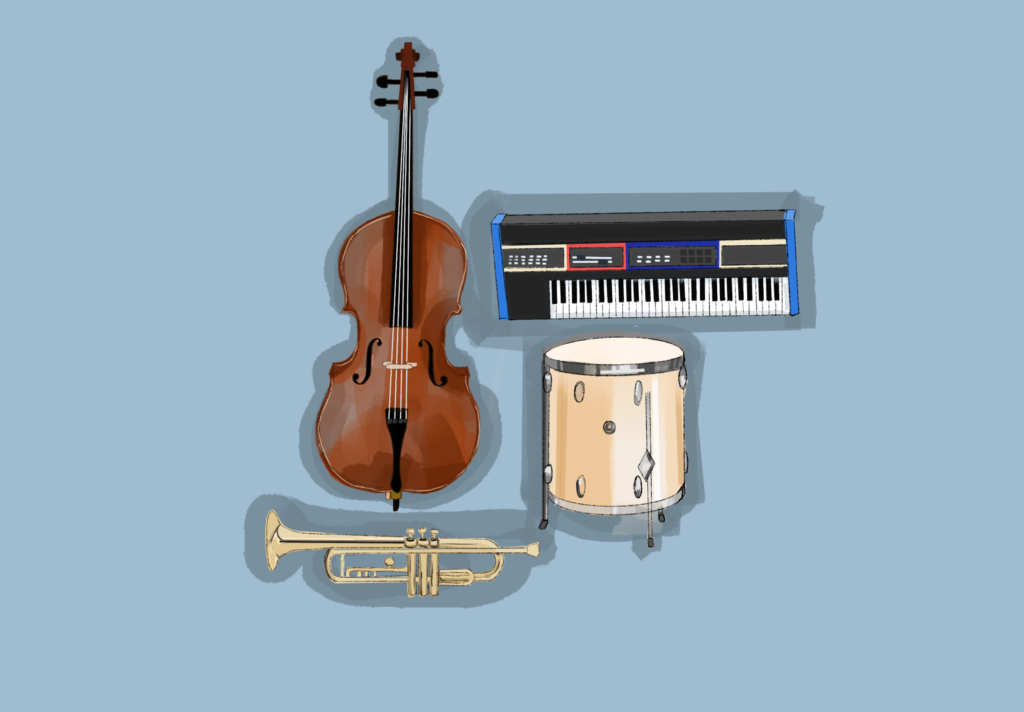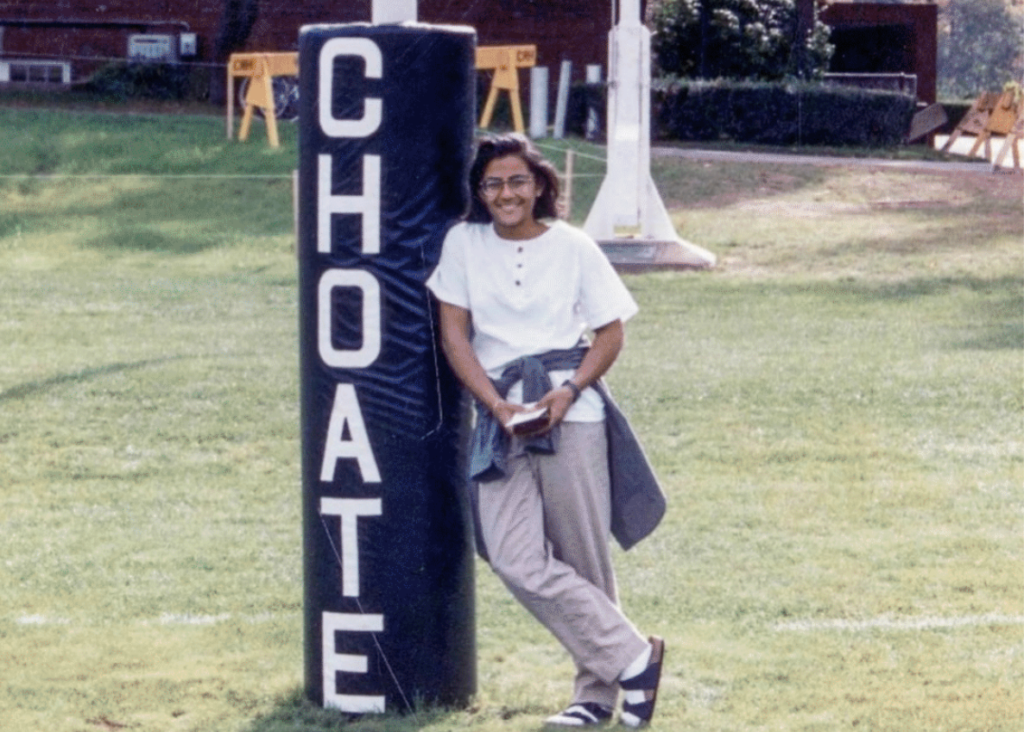
Graphic by Tony Lee/The Choate News
Since last year’s virtual spring term, Choate’s theater, music ensembles, and a cappella groups have adapted to the School’s “new normal” and are ready to embark upon the 2020-2021 school year with innovative ideas to solve the difficulties imposed by distance learning — starting with auditions.
Given the current circumstances, theater cannot exist in its traditional form of stage productions attended by a physical audience. Adapting to this unprecedented situation, Mrs. Kate Doak, English teacher and director of this term’s main production, co-wrote the fall play Take-Away with a group of students — Ethan Bardoe ’21, Maxwell Brown ’21, Eliza Marovitz ’21, and Audrey Lim ’23 — over Zoom this summer.
“I decided to write a play because we were having problems getting rights to shows for Zoom, and they all felt like they would be a lesser version of themselves if staged in Zoom,” Mrs. Doak said. “So we wrote something towards Zoom and screens. We wanted to craft something that could be staged no matter the circumstances of Choate’s term.”
As Take-Away explores an unconventional form of theater that is staged virtually, Mrs. Doak and the students who co-wrote the play decided that it was essential to hold the auditions through Zoom to see how different parts played out on camera and on the online platform.
Whereas Take-Away conducted its auditions through Zoom, a cappella groups on campus received their auditions through Google Forms and Dropbox files. Auditioning students each submitted an audio recording showing off their vocal skills through Dropbox, and select students will be further interviewed in callbacks. Although the deadline for auditions and the announcement date for callbacks were initially set for September 16 and 21, respectively, a shortage of auditioning students forced the groups to tentatively extend the dates to October 4 and 11.
Chloe Brink ’21, co-president of Lilith, one of two all-female a cappella groups on campus, acknowledged the difficulty of assessing some aspects of students’ abilities through recordings. However, since a cappella’s main focus is on the members’ voices, Brink was confident about the efficacy of online auditions. “Recordings don’t change your voice too much, and through them we can have a general idea about the singer,” said Brink.
The fall play held auditions through video call; a cappella through recording files; instrumental ensembles approached auditions with a hybrid of both. Returning ensemble members were only required to submit a recording while new students had to each schedule a live Zoom call with Mr. Gene Wie, Instrumental Ensembles Director.
Mr. Wie said he was more generous in assessing students’ abilities during real-time Zoom auditions than via recordings. Since self-taped videos could be recorded multiple times, artists have the freedom to record an unlimited number of times until they capture their best attempt. In contrast, video call meetings, similar to in-person auditions, are one-shot opportunities that can cause stress and anxiety, affecting musicians’ performances.
Instead of focusing on catch- ing minor mistakes during audi- tions, Mr. Wie said he evaluates students mainly on their ability to play the symphony pieces and their rhythmic integrity, as this indicates if students can play cohesively with other members in an ensemble. As Mr. Wie said, “The deciding factor is rhythm, rhythm, rhythm!”
Lauren Kee ’24, a third-former in the Symphony Orchestra, preferred auditioning through recording to performing in person. Although she is a new student, Kee submitted a recording since she was unable to schedule a meeting due to time zone differences.
“Recordings were better for me because I didn’t need to compare my performance to other people. I was just trying to outcompete myself,” Kee said. However, she noted that recorded auditions lacked interactions with the conductor, which is essential in understanding the conductor’s expectations.
Whether future auditions will be online for certain theater, a cap- pella, or instrumental groups after the pandemic remains unknown.




